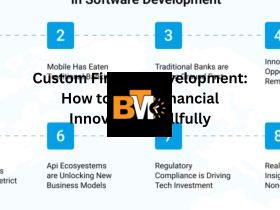Effective property management is essential to maintaining the value, appeal, and profitability of your property. Whether you’re a new property owner or have years of experience, staying updated with the best practices ensures that your property remains a well-maintained and profitable asset. This guide provides 10 actionable property management tips to help you navigate the challenges of property ownership with confidence.
Key Strategies for Successful Property Management
Managing a property involves a mix of proactive planning, effective communication, and staying informed about market trends and regulations. Here are 10 essential tips to help you succeed.
1. Conduct Regular Property Inspections
Routine inspections are crucial for identifying potential issues before they escalate into costly problems. Inspections should include:
- Exterior Checks: Inspect the roof, gutters, landscaping, and paint for signs of wear or damage.
- Interior Assessments: Look for plumbing leaks, electrical issues, and structural damage.
- Seasonal Adjustments: Prepare for weather-related challenges by checking heating, cooling, and insulation systems.
Tip: Schedule inspections quarterly and after extreme weather events for optimal property upkeep.
2. Develop an Effective Maintenance Plan
Maintenance is one of the cornerstones of successful property management. A proactive approach includes:
- Scheduling Preventive Maintenance: Regularly service HVAC systems, plumbing, and electrical systems.
- Emergency Response Protocols: Have a plan in place to address urgent issues, such as burst pipes or electrical failures.
- Working with Trusted Vendors: Build a network of reliable contractors to ensure quality repairs.
A well-maintained property not only retains its value but also enhances its appeal to potential occupants.
3. Utilize Technology Tools
Modern technology can simplify property management tasks and improve efficiency. Key tools include:
- Property Management Software: Automates scheduling, billing, and reporting.
- Digital Communication Platforms: Makes it easier to stay connected with contractors and stakeholders.
- Data Analytics Tools: Provides insights into property performance and operational efficiency.
Leveraging these tools reduces manual effort and helps you stay organized.
4. Master Communication Strategies
Strong communication is essential for effective property management. Tips include:
- Clarity and Transparency: Provide regular updates on property conditions and upcoming projects.
- Proactive Listening: Address concerns promptly and seek feedback to improve processes.
- Accessible Channels: Ensure multiple communication platforms, such as email, phone, or messaging apps, are available.
Good communication fosters trust and ensures smooth operations.
5. Budget Wisely
Budgeting is a critical aspect of property management. Effective budgeting includes:
- Allocating for Maintenance: Set aside funds for regular upkeep and unexpected repairs.
- Planning for Improvements: Invest in upgrades that enhance property value.
- Tracking Expenses: Use financial software to monitor spending and identify cost-saving opportunities.
Having a clear budget ensures financial stability and efficient property management.
6. Stay Compliant with Legal Responsibilities
Property owners must stay informed about regulations to avoid legal issues. Key practices include:
- Understanding Local Laws: Be aware of building codes, safety standards, and other compliance requirements.
- Documentation Management: Keep records of inspections, permits, and certifications.
- Regular Updates: Stay informed about changes in laws and regulations to ensure ongoing compliance.
Proper legal management protects your property and your reputation.
7. Monitor Market Trends
Staying updated on market trends helps you make informed decisions. Key factors to monitor include:
- Local Property Values: Understand how market fluctuations impact your property.
- Regional Development Projects: Keep an eye on new infrastructure or zoning changes.
- Demand Analysis: Assess the demand for properties in your area to adjust strategies accordingly.
Market knowledge positions you to capitalize on opportunities and mitigate risks.
8. Have a Crisis Management Plan
Unexpected crises can disrupt property management. Prepare for challenges by:
- Establishing Protocols: Define roles and responsibilities for handling emergencies.
- Emergency Contacts: Maintain a list of reliable vendors and service providers.
- Insurance Coverage: Ensure your property is adequately insured against natural disasters, accidents, and other risks.
A solid crisis management plan minimizes disruption and ensures a swift response.
9. Build a Network of Experts
Successful property management often requires external expertise. Build a network of professionals such as:
- Contractors: For maintenance and repair services.
- Legal Advisors: To navigate compliance and regulatory challenges.
- Market Analysts: To provide insights into property trends and opportunities.
A strong network ensures you have the support needed for efficient management.
10. Invest in Continuous Learning
The property management industry evolves rapidly. Stay ahead by:
- Attending Workshops and Seminars: Learn about the latest trends and best practices.
- Joining Industry Groups: Network with peers to exchange ideas and solutions.
- Exploring Certifications: Consider pursuing certifications to enhance your expertise.
Continuous learning ensures you remain competitive and well-informed.
FAQs About Property Management
What are best practices for handling legal complaints?
Best practices include maintaining clear records of all property transactions, staying updated on local regulations, and working closely with legal advisors to resolve disputes promptly. Address complaints with transparency and provide documented evidence when needed.
How often should I conduct property inspections?
Inspections should be conducted at least quarterly. Additional inspections may be needed after significant weather events or when preparing for seasonal changes to ensure the property remains in optimal condition.
Conclusion
Effective property management requires a proactive approach, strategic planning, and a commitment to continuous improvement. By implementing these 10 tips, you can ensure the long-term success of your property while minimizing challenges. From routine inspections to leveraging technology and building strong communication, these strategies empower property owners to achieve excellence in management. This article is written by The MediaGale







Leave a Reply